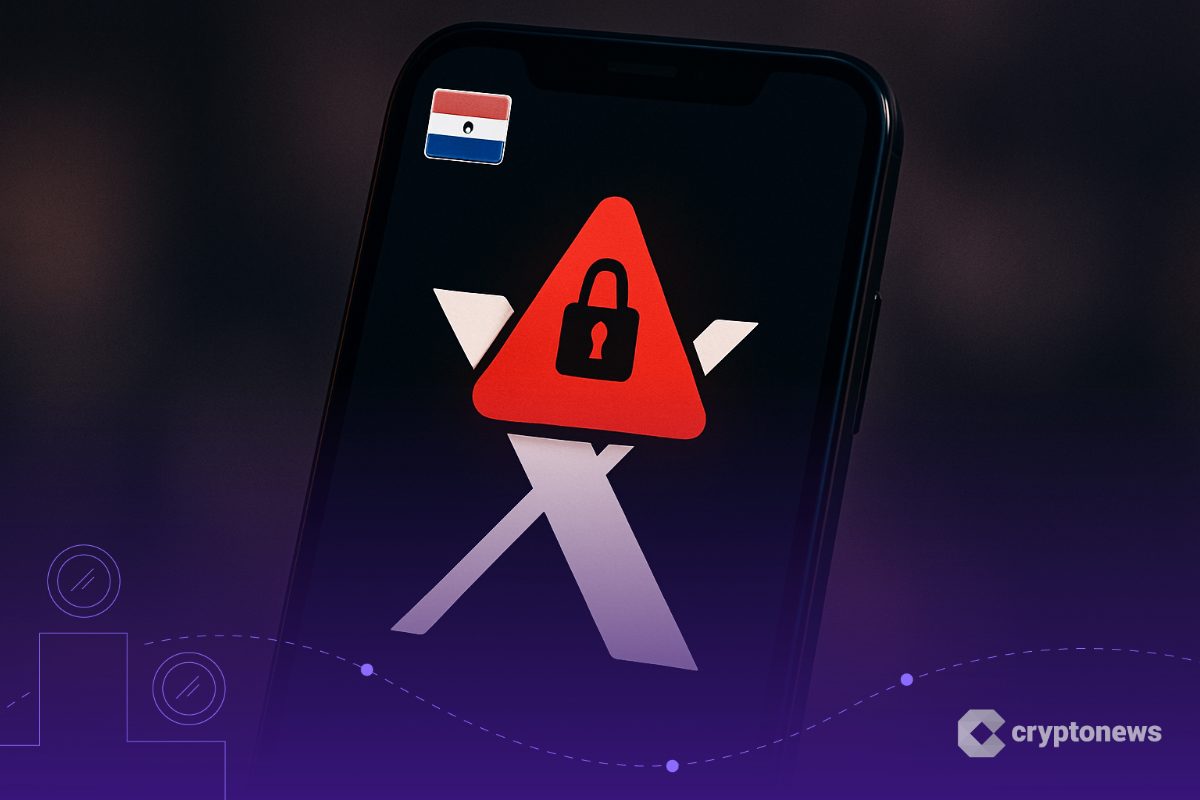
Key Takeaways:
- Paraguay’s President Santiago Peña had his official X account compromised, leading to the spread of a false announcement about Bitcoin.
- The language and content of the post raised immediate red flags among observers, prompting swift clarification from the Paraguayan government.
- On-chain analysis showed the attached wallet had minimal funds and no activity, suggesting a phishing attempt.
Paraguay’s President, Santiago Peña, became the latest high-profile figure to fall victim to a social media hack after his official X account was compromised on Monday.
The breach resulted in a fake announcement claiming the country had adopted Bitcoin as legal tender.
Paraguay Denies Bitcoin Legal Tender Claim After Presidential Account Hack
The message, written unusually in English rather than Spanish, declared that Paraguay had made Bitcoin an official currency. It also claimed the government had created a $5 million BTC reserve and launched a bond program for “crypto-enabled citizens.”
The post urged users to send any amount of Bitcoin to a wallet address, supposedly to determine the scale of a national rollout.
https://twitter.com/SantiPenap/status/1932125390153396541
Observers quickly flagged the message as suspicious. Many noted that the language and tone were inconsistent with previous communications from the president, who typically posts in Spanish.
Shortly after the post went live, the platform flagged the account for “irregular activity,” according to an additional report.
The Paraguayan government swiftly issued an official response. The presidential account posted a message in Spanish that read:
“Información falsa. Comunicado oficial de la presidencia de la República del Paraguay.” This statement confirmed that the Bitcoin announcement was false.
However, the hacker attempted to conceal the government’s warning by hiding the official reply beneath the scam post. The fraudulent message remained live for a time, possibly misleading unsuspecting users.
On-chain data revealed that the wallet address provided by the hacker held only $4 and had recorded no transactions since the announcement. Despite the low activity, the nature of the post resembled a classic crypto phishing scheme.
Authorities urged the public not to trust any posts from the president’s account until further notice. Paraguay’s national cybersecurity team has launched an investigation and is working with X to resolve the incident and restore control over the account.
“We ask citizens to ignore any messages from the presidential account until we confirm its security,” the government said.
Ongoing Crypto Scam Wave Hits Political and Industry Targets Across Latin America
The hacking of Paraguayan President Santiago Peña’s official X account adds to a growing string of high-profile social media compromises, many of which have targeted the crypto industry and public figures to spread misinformation and scams.
Over the past year, threat actors have increasingly exploited X for crypto-related phishing attacks.
In May 2025 alone, the X accounts of Ethereum Layer-2 project ZKsync and its developer Matter Labs, were breached.
Hackers posted fraudulent messages claiming the protocol was under U.S. investigation and shared phishing links disguised as airdrops.
Around the same time, the New York Post’s account was hijacked to impersonate journalists and lure crypto users into fake podcast offers via Telegram.
Earlier in the year, Canadian regulators also flagged fake articles featuring political endorsements used to promote crypto scams.
State-sponsored hackers from the Lazarus Group have also posed as VCs in fake Zoom meetings to steal users’ private keys.”
Paraguay has shown no intention to follow El Salvador’s 2021 move, which remains in a legal gray area following an IMF agreement reached in late 2024.
Meanwhile, Paraguay’s crypto scene is under pressure. As Bitcoin mining gains traction, thanks to the country’s hydroelectric surplus, regulatory tensions are rising.
Industrial players warn that new electricity rates could drive miners away.
With over 10,000 illicit mining rigs seized in 2024 and tensions rising around mining regulations, the misuse of official platforms for misinformation poses a real threat to public understanding in an already volatile sector.






